Learn about Medicinal Herbs
Medicinal herbs are plants which contain chemicals that have an effect upon the body, but how useful are these herbs? 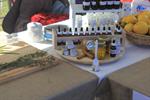
Some people swear by them, yet others are highly suspicious. If you delve a little deeper, you'll soon discover that many of the medicines prescribed by doctors and sold by pharmacists originate from herbs. For instance, did you know that aspirin has a similar action to salicylic acid derived from salicin found in willow bark? Although the proper processing of herbs for medicinal purposes is complex, and beyond the skills of the average home gardener, there are many herbs which are relatively easy to grow and safe for most people to use. We're talking here about things like Rosemary, Lavender, Garlic and Lemon Balm. Many of them also have the added benefit of attracting predatory insects to your garden which will keep unwanted pests in check.
Learn the uses of many herbs
This fully immersive course provides students with knowledge on a broad range of herbal plants including how to grow them and what they can be used for. You also learn about general growing requirements for medicinal herbs including soils, watering, fertilising, and pest and disease control. Discover a brief history of medicinal herbs and find out how to prepare various herbal remedies. You even get to develop your own production plan for a herbal crop of your choice.
COURSE STRUCTURE AND CONTENT
The course comprises 8 lessons, as follows:
- Introduction to Medicinal Herbs
- Scope and Nature of Herbal Medicine
- Being Cautious
- Growing and Knowing Medicinal Herbs
- Accurate Plant Naming
- Pronouncing Plant Names
- Finding Reliable Resources
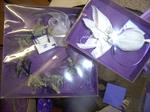
- Culture of Medicinal Herbs
- What is a Herb
- Soils and Nutrition
- Cultivation
- Fertilizing Herbs
- Compost, Mulch, Watering
- Propagation
- Pest and Disease
- History
- Introduction
- Hippocrates
- Chinese Herbalists
- Egyptian Influence
- Greek Influences
- The Dark Ages
- German and English Herbals
- Other Influences
- Main Medicinal Herbs
- Introduction and Varieties to Grow
- Production Plan
- Improving Soil Fertility
- Cover Crops and Legumes
- Cultivation, Growing Methods, Compost
- Growing and using Ginger
- Garlic Culture
- Echinacea Culture
- Herbal Remedies
- Alternatives
- Anthelmintic
- Astringents
- Bitter Tonics
- Calmatives
- Carminatives and Aromatics
- Cathartics
- Diaphoretics
- Dietetics
- Demulcents
- Emollients
- Expectorants
- Nervines
- Relaxants
- Vulnerary Herbs
- Common Herbs with Medicinal Properties
- Nervines as Healing Agents
- Natural Chemicals in Plants and their Affect on Health; saponins, phenolglycosides, anthraglycosides, flavonoids, mustard oils, polysaccharides, prussic acid, glycosides, coumarin, tannins, bitters, essential oils, alkaloids, purines, essential minerals
- Chemistry of Herbs
- Herbal Sources for Human Nutrients
- Preparing Herbal remedies
- Infusion
- Decoction
- Poultice
- Medical Preparations
- Problem of Accurately Formulating Herbal Medicines
- How herbalists used to work
- The Difference Today
- Harvesting Material for Herbal Preparations
- Post Harvest Handling of Herbs
- Post Harvest Preservation; Fresh, Modified Atmosphere Packaging
- Herbal Preparations for Teas, Rinses and Baths
- Producing Essential Oils; Water distillation, Steam distillation
- Uses for Eucalyptus Oil
- Poisonous Plants
- Introduction
- Review of Plant Poisons
- Hazardous Herbs
- Carcinogens, Photosensitizers, Allergens, Hormone Like Affects, Teratogens, Respiratory Inhibitors, etc
- Toxic Plant Constituents
- Developing a Production Plan
- Managing a Market Garden
- Deciding What to Grow
- Production Planning
- Types of Problems
- Standards
- Crop Schedules
- Farming Medicinal Herbs
- Production Requirements for Different Herbs
Each lesson culminates in an assignment which is submitted to the school, marked by the school's tutors and returned to you with any relevant suggestions, comments, and if necessary, extra reading.
AIMS
On successful completion of the course you should be able to do the following:
- Distinguish between medicinal herbs in cultivation including twenty-five different genera and fifty different varieties.
- Discuss the history of medicinal herb usage.
- Compare the chemical components of different medicinal herbs in terms of their general affect on the human body.
- Prepare simple and safe herbal remedies in a domestic situation.
- Explain the potential dangers involved in dealing with plants.
- Prepare a schedule of cultural practices for a medicinal herb crop.
- Develop a production plan for a medicinal herb crop.
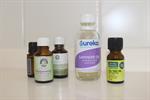 WHAT THE COURSE COVERS
WHAT THE COURSE COVERS
Here are just some of the things you may be doing:
- Define the term "medicinal herb" according to both horticultural and naturopathic meanings.
- Compile a resource file of different sources of information regarding medicinal herbs.
- Distinguish between different plant families which common medicinal herbs belong to.
- Prepare a plant collection of different medicinal herb varieties.
- List different medicinal herbs which were often used more than one hundred years ago, but are no longer commonly used.
- Identify modern trends in the use of herbs in medicines in your country.
- Discuss the role of home remedies in modern society.
- Discuss the role of the naturopath in modern society.
- Summarise the history of medicinal herbs since early civilisation, to modern times.
- Explain the characteristics of different types of chemicals found in medicinal herbs.
- Write brief definitions to explain the mode of action of different herbal medicines.
- Write an essay describing the chemical actions which different herbs have upon the human body.
- Explain various factors which can influence the effectiveness of active constituents of a herb.
- List herbal remedies derived from different commonly grown herbs.
- Identify the morphological parts of different herbs which are used medicinally.
- Explain thoroughly how to prepare different types of simple medicines, including a: *Poultice *Infusion *Decoction *Tincture.
- Develop a list of safety procedures to follow when preparing a given herbal medicine.
- Explain methods to administer six different herbal medicines which are safe and appropriate for an unskilled person to make and use at home. (ie. medicines which do not have any dangerous risks if prepared or administered incorrectly).
- Describe, in summaries, twelve commonly occurring plants which contain poisonous substances, including: *names (botanical and common) *dangerous parts of the plant *poisonous substances *mode of action of poison *remedy (if any).
- List herbs that should never be taken internally.
- List herbs which should never be used by pregnant women.
- List herbs which should never be used by children.
- Describe specific examples, precautions when dealing with unknown herb materials.
- Develop guidelines for the culture of a specified variety of medicinal herb.
- Explain natural pest and disease control methods for five medicinal herb varieties.
- Prepare a sample of soil suitable for growing a specified herb variety in the open ground.
- Demonstrate propagation techniques for different medicinal herbs.
- Produce container plants of different medicinal herbs, propagating and growing on the plants to a marketable stage and condition.
- Record the development of medicinal herbs in a log including a summary of the condition of the plant, growth, and cultural practices carried out.
- Develop a list of criteria for selecting the most commercially viable variety of a nominated medicinal herb species available.
- List different varieties of a medicinal herb species which are readily available for purchase as "reliable" seed or tubestock.
- Compare different varieties of nominated medicinal herb species to determine a commercially viable variety to grow in your locality.
- List tasks to be undertaken in the production of a selected medicinal herb variety, including: *soil preparation *planting *growing practices *harvest and post harvest.
- Write a production schedule for a medicinal herb variety which designates tasks to be undertaken systematically at each stage of crop development.
- Explain the facilities which would be required to produce a specified commercial medicinal herb crop, including: *equipment *materials *land.
- Estimate the cost of producing a specified medicinal herb crop, itemising the cost components into categories.
Herbs Have a Long History of Use in Medicine
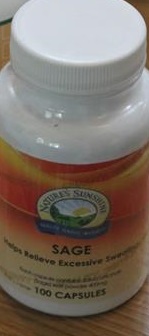 Various systems of medicine have evolved around the world over thousands of years and each has its roots in medicinal plants. In fact, botany and medicine only became separate disciplines in around 1500 AD. Of particular interest are the ancient systems of India and China because these have written records of plants and formulations which can be traced back about 3000 years:
Various systems of medicine have evolved around the world over thousands of years and each has its roots in medicinal plants. In fact, botany and medicine only became separate disciplines in around 1500 AD. Of particular interest are the ancient systems of India and China because these have written records of plants and formulations which can be traced back about 3000 years:
- Ayurveda - traditional Indian medicine which holds that disease can be caused by external or internal factors and emphasises the role of diet and drugs in combating disease.
- Chinese medicine - traditional Chinese medicine includes dietary therapy as part of its approach to achieving balance in bodily systems to avoid the onset of disease.
Other systems such as those which emerged in Egypt, the Middle East, South America and Africa also made wide use of plants though there is a lack of written records for the latter two. In Europe, much of medicine was based on the teachings of the ancient Greeks like Hippocrates and included plant preparations like herbal teas.
Nowadays, the majority of people around the world still rely on medicinal herbs and local herbal remedies which have evolved in their cultures. In Western society at least ten percent of pharmaceuticals have herbal components and many others are based on natural plant compounds.
Medicinal herbs are used to treat a broad array of physical problems. This is because they contain secondary metabolites which act as bioactive ingredients. In particular they have been used to treat cancers, cardiovascular disorders, hypertension, neurological disorders e.g. Parkinson's disease and epilepsy, and malaria. For instance, vinblastane, vincristine and taxol have anti-neoplastic properties meaning that they attack and destroy cancer cells i.e. neoplasms or tumours. Digoxin is used as a cardiotonic because it helps to stimulate heart contractions and thereby cause it to pump more blood around the body. Reserpine has an effect on the regulation of blood pressure. Quinine and artemisinin are used in the treatment of malaria. Morphine has been used for centuries to ease pain and codeine remains the benchmark of antitusive drugs used to ease the symptoms of coughs. Some other bioactive ingredients are also involved in the treatment of mental health disorders e.g. schizophrenia and dementia.
Medicinal plants play a significant and increasing role in drug research. New discoveries in terms of active constituents promise to improve our understanding of the significance of herbal plants.
How Do Herbs Affect the Body?
The effect of medicinal herbs on our bodies may be mild or strong. For internal preparations, to some extent this depends upon the person. A small child, sick adult, or a frail elderly person would require a lower dosage than a healthy adult. The effect of herbs can also be influenced by a number of other factors:
The species and variety of plant - there can be subtle but important differences between two plants which may appear to be identical. For example, many herbs now sold are cultivated varieties of the original species and may not have the chemical constituents of the species form.
- How it was grown - herbs that are over-fertilised and watered tend to have a lower concentration of the important chemical constituents.
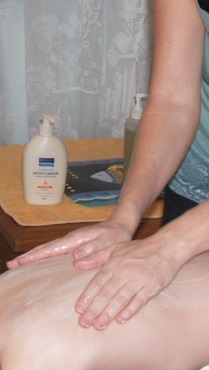
- The parts of the plant used - the chemical may only be found in certain plant parts such as root, leaf, stem, flower, or fruit.
- Mature or new growth - the chemical may be stronger in mature plant parts.
- Harvest time - time of day, time of year, weather conditions at the time, etc.
- The preparation of the medicine - as an oil, tablet, tea, ointment, and so on.
- The storage of the medicine - some medicines store well, but generally fresh is best.
- How it is used - some herbs may be safe to use externally, but the same herb may cause serious health problems if taken internally.
- Concentration level - some may be beneficial in a certain concentration, but dangerous in another concentration.
How are Medicinal Herbs Used?
Herbal Medicine - herbal products tend to work with the body's natural processes to combat disease (rather than by blocking natural processes as in conventional allopathic medicine). In extreme situations, herbal medicine may be inappropriate.
Naturopathy - this is based on helping the body heal itself by attending to the five "cornerstones" of good health: good nutrition, a good (psychological) attitude, fresh air, exercise, and sunshine. Disease is seen as a body reacting against a build-up of toxins. Herbs may be used to stimulate faster elimination of these toxins from the body.
Aromatherapy - scented oils derived from herbs are used to treat various ailments from mild stress or headaches, to more severe problems. This might involve massage with scented oils, washing with scented soaps and taking scented baths, or scenting the air with fragrant candles, atomisers, or potpourri.
Homoeopathy - this is based on a principle that "like cures like" (similar to the concept of immunisation). The body is seen to have a self-healing potential, so by taking a very dilute solution of something (normally derived from herbs), which will cause the same symptoms as an illness, the body is then stimulated to combat those symptoms, and in doing so, combat the illness.
What do our Students Say?
I have never found the staff at any other learning institution as supportive as the staff at ACS. This gives one a lot of peace of mind and confidence to go on - at every squeak from my side, you guys have always been there, immediately to sort me out. The feedback on my lessons has always been really good and meaningful and an important source of my learning. Thanks!...
Student with ACS
The Medicinal Herbs course has been an invaluable experience and reference towards doing Naturopathy at University. The tutors are very approachable and informed, the course structure is very well laid out and the enclosed texts and information will be a very useful reference in years to come. Without going to University these courses, in particular Medicinal Herbs, are some of the only other quality information that one can receive at a very reasonable price and a very flexible study structure.
Matthew
Reasons to Study This Course
This course is likely to be of value to people who have a keen interest in herbal plants and medicine. It will also appeal to anyone with a general interest in herbs. People who take this course are most likely those working in or aspiring to work in:
- Nurseries
- Horticulture
- Parks & Gardens
- Herbal Industries
- Herbal Medicine
- Herb Farms
The course will also be of value to people wishing to start a herb farm business.
WHAT NEXT?
Register to Study - Go to panel toward top of this page (right column)
or
Get Advice - Use our FREE COUNSELLING SERVICE to contact a tutor
CLICK TO CONTACT US